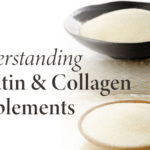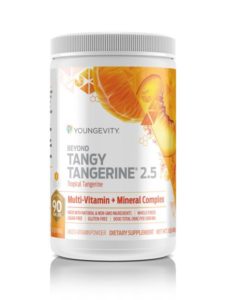
The country’s leading nutrition advisory panel has chosen to drop its caution about consuming cholesterol-laden food, a move that might undo virtually 40 years of government cautions about its consumption.
The group’s finding that cholesterol in the diet requirement not be considered a “nutrient of issue” stands in contrast to the committee’s findings five years earlier, the last time it assembled. During those procedures, as in previous years, the panel considered the issue of excess cholesterol in the American diet a public health concern.
The finding follows a development of thinking amongst many nutritional experts who now think that, for healthy adults, eating foods high in cholesterol may not significantly impact the level of cholesterol in the blood or enhance the danger of cardiovascular disease.
Eggs are among the couple of foods that I would categorize as “superfoods.”.
They are packed with nutrients, a few of which are uncommon in the contemporary diet.
Here are 10 health benefits of eggs that have actually been validated in human studies.

1. Eggs Are Exceptionally Healthy.
Eggs are among the most nutritious foods on earth.
A whole egg includes all the nutrients required to turn a single cell into an infant chicken.
A single big boiled egg contains (1):.
Vitamin A: 6 % of the RDA.
Folate: 5 % of the RDA.
Vitamin B5: 7 % of the RDA.
Vitamin B12: 9 % of the RDA.
Vitamin B2: 15 % of the RDA.
Phosphorus: 9 % of the RDA.
Selenium: 22 % of the RDA.
Eggs also include good portions of Vitamin D, Vitamin E, Vitamin K, Vitamin B6, Calcium and Zinc.
This is having 77 calories, 6 grams of protein and 5 grams of healthy fats.
Eggs likewise consist of various other trace nutrients that are necessary for health.
Truly … eggs are pretty much the ideal food, they include a little bit of almost every nutrient we require.
If you can get your hands on pastured or Omega-3 enriched eggs, then these are even better. They have more Omega-3s and are much greater in Vitamin A and E (2, 3).
Bottom Line: Entire eggs are amongst the most healthy foods in the world, consisting of a bit of practically every nutrient we need. Omega-3 enriched and/or pastured eggs are even healthier.
2. Eggs Are High in Cholesterol, But They Do not Negatively Influence Blood Cholesterol.
It holds true that eggs are high in cholesterol.
In fact, a single egg includes 212 mg, which is over half of the advised daily intake of 300 mg.
However … it is necessary to bear in mind that cholesterol in the diet doesn’t always raise cholesterol in the blood (4, 5).
The liver in fact produces huge portions of cholesterol each and every single day. When we consume more eggs, the liver just produces less cholesterol rather, so it levels (6, 7).
The reaction to egg usage varies in between specific (8):.
In 70 % of individuals, eggs do not raise cholesterol at all.
In the other 30 % (termed “hyper responders”), eggs can slightly raise Overall and LDL cholesterol.
However, as I will detail later in the post, the circumstance is a bit more complex than that and these changes are really advantageous.
(Exceptions … individuals with congenital diseases like familial hypercholesterolemia or a gene type called ApoE4 may want to decrease or avoid eggs.).
Bottom Line: Eggs are high in cholesterol, but consuming eggs does not have adverse effects on cholesterol in the blood for the majority of people.
3. Eggs Raise HDL (The “Great”) Cholesterol.
HDL means High Density Lipoprotein. It is typically referred to as the “good” cholesterol (9).
Individuals who have greater levels of HDL normally have a lower risk of cardiovascular disease, stroke and numerous health issue (10, 11, 12, 13).
Consuming eggs is a terrific way to enhance HDL.
In one research, 2 eggs daily for 6 weeks enhanced HDL levels by 10 % (14, 15, 16).
Bottom Line: Egg usage regularly causes raised levels of HDL (the “great”) cholesterol, which is connected to a decreased risk of many illness.
4. Eggs Contain Choline– an Essential Nutrient That Most People Don’t Get Enough of.
Choline is a nutrient that most people do not even understand exists.
Yet, it is an extremely crucial drug and is commonly organized with the B vitamins.
Choline is used to develop cell membranes and has a function in producing signalling molecules in the brain, along with various other functions (17).
Dietary studies have revealed that about 90 % of individuals in the United States are getting less than the advised quantity of choline (18).
Entire eggs are an excellent source of choline. A single egg includes more than 100 mg of this crucial nutrient.
Bottom Line: Eggs are among the very best dietary sources of choline, a nutrient that is exceptionally vital however most individuals aren’t getting enough of.
5. Eggs Turn LDL Cholesterol From Little, Thick to Big, Linked to a Minimized Risk of Heart problem.
LDL cholesterol is typically known as the “bad” cholesterol.
It is well known that having high levels of LDL is linked to an increased risk of heart disease (19, 20).
However what lots of people don’t understand is that there are subtypes of LDL that have to do with the size of the particles.
There are little, dense LDL particles and after that there are huge LDL particles.
Numerous studies have shown that people who have predominantly little, dense LDL particles have a greater threat of heart problem than individuals who have primarily large LDL particles (21, 22, 23).
Even if eggs tend to mildly raise LDL cholesterol in some people, research studies reveal that the particles alter from little, dense to huge LDL … which is a good thing (24, 25).
Bottom Line: Egg usage appears to alter the pattern of LDL particles from small, dense LDL (bad) to huge LDL, which is linked to a reduced heart disease risk.
6. Eggs Contain Lutein and Zeaxanthin, Anti-oxidants That Have Major Advantages For Eye Health.
Among the consequences of aging is that eyesight tends to become worse.
There are a number of nutrients that assist neutralize some of the degenerative processes that can influence our eyes.
Two of these are called Lutein and Zeaxanthin, effective antioxidants that have the tendency to develop in the retina of the eye (26, 27).
Studies show that consuming adequate quantities of these nutrients can substantially lower the danger of cataracts and macular degeneration, 2 typical eye conditions (28, 29, 30).
Egg yolks really contain large amounts of both Lutein and Zeaxanthin.
In one controlled trial, consuming simply 1.3 egg yolks per day for 4.5 weeks increased blood levels of Lutein by 28-50 % and Zeaxanthin by 114-142 % (31).
Eggs are likewise high in Vitamin A, which deserves another mention here. Vitamin A deficiency is the most common reason for loss of sight in the world (32).
Bottom Line: The antioxidants Lutein and Zeaxanthin are very important for eye health and can assist avoid macular degeneration and cataracts. Eggs are high in both of them.

7. In the Case of Omega-3 or Pastured Eggs, They Lower Triglycerides also.
Naturally, it does not just matter exactly what we eat … it also matters what the foods that we consume, consumed.
Boy Holding a Chicken and Eggs.
In this regard, not all eggs are created equivalent. Their nutrient structure differs depending on how the hens were fed and raised.
Eggs from hens that are raised on pasture and/or fed Omega-3 enriched feeds tend to be much higher in Omega-3 fatty acids.
Omega-3 fatty acids are known to lower blood levels of triglycerides, a well recognized risk element for cardiovascular disease (33, 34).
Researches reveal that taking in Omega-3 enriched eggs is an extremely reliable method to decrease triglycerides in the blood. In among the studies, simply 5 omega-3 enriched eggs weekly for 3 weeks decreased triglycerides by 16-18 % (35, 36).
Bottom Line: Omega-3 enriched and pastured eggs contain considerable portions of Omega-3 fats. Eating these kinds of eggs is an efficient way to reduce blood triglycerides.
8. Eggs Are High in Quality Protein, With All The Vital Amino Acids in The Right Ratios.
Proteins are the primary foundation of the human body.
They’re utilized to make all sorts of tissues and molecules that serve both structural and functional purposes.
Getting enough protein in the diet plan is essential and researches reveal that presently recommended amounts might be too low.
Well … eggs are an exceptional source of protein, with a single huge egg containing 6 grams.
Eggs contain all the important amino acids in the ideal ratios, so our bodies are well geared up making complete use of the protein in them.
Eating appropriate protein can aid with weight loss, boost muscle mass, lower high blood pressure and optimize bone health … to name a few (37, 38, 39, 40).
Bottom Line: Eggs are fairly high in quality animal protein and consist of all the essential amino acids that humans need.
9. Eggs do NOT Raise Your Risk of Heart problem and May Reduce The Threat of Stroke.
For many years, eggs have been unfairly demonized.
It has actually been claimed that because of the cholesterol in them, they need to be bad for the heart.
Numerous studies released recently have actually analyzed the relationship in between egg usage and the danger of heart problem.
In one review of 17 studies with a total of 263,938 participants, no association was found between egg usage and cardiovascular disease or stroke (41).
Many other research studies have caused the same conclusion (42, 43).
Nevertheless … some research studies have discovered that people with diabetes who eat eggs have actually an increased threat of cardiovascular disease (44).
Whether the eggs are really causing the increased danger isn’t really understood, because these kinds of researches can only show statistical association. They can not show that eggs caused anything.
It is possible that diabetics who consume eggs are less health conscious, on average.
On a low-carb diet, which is without a doubt the very best diet plan for diabetics, eating eggs results in enhancements in danger aspects for heart disease (45, 46).
Bottom Line: Many researches have actually taken a look at egg usage and the risk of heart disease and discovered no association. However, some researches have actually found an enhanced risk in people with type 2 diabetes.
10. Eggs Are Highly Satisfying and Tend to Make You Consume Fewer Calories, Assisting You to Lose Weight.
Eggs are exceptionally satisfying.
They are a high protein food … however protein is by far the most satisfying macronutrient (47).
Eggs score high on a scale called the Satiety Index, which determines the capability of foods to cause sensations of fullness and minimize subsequent calorie intake (48).
In one research of 30 overweight women, consuming eggs instead of bagels for breakfast increased feelings of fullness and made them automatically eat fewer calories for the next 36 hours (49).
In another research study, replacing a bagel breakfast with an egg breakfast triggered considerable weight reduction over a period of 8 weeks (50).
Take Home Message.
The research studies plainly show that eating up to 3 entire eggs daily is completely safe.
There is no proof that exceeding that is hazardous, it is simply “uncharted territory” as it hasn’t been studied.
I personally consume about 3-6 whole eggs daily and my health has never been much better.
Truly … eggs are pretty much nature’s best food.
On top of everything else, they are likewise low-cost, easy to prepare, go with virtually any food and taste outstanding.
References
https://journals.cambridge.org/action/displayAbstract?fromPage=online&aid=7219036
https://www.sciencedirect.com/science/article/pii/S0308814609003513
https://en.wikipedia.org/wiki/Cholesterol
https://www.sciencedirect.com/science/article/pii/0026049565900028
https://www.ncbi.nlm.nih.gov/pubmed/22037012
https://atvb.ahajournals.org/content/16/10/1222.long
https://www.ncbi.nlm.nih.gov/pmc/articles/PMC24942/
https://www.ncbi.nlm.nih.gov/pubmed/16340654
https://en.wikipedia.org/wiki/Familial_hypercholesterolemia
https://en.wikipedia.org/wiki/Apolipoprotein_E
https://circ.ahajournals.org/content/111/5/e89.full
https://europepmc.org/abstract/MED/11374850
https://www.ncbi.nlm.nih.gov/pubmed/21296318
https://circ.ahajournals.org/content/79/1/8.short
https://stroke.ahajournals.org/content/31/8/1882.full
https://www.ncbi.nlm.nih.gov/pubmed/8120521
https://www.ncbi.nlm.nih.gov/pubmed/23021013
https://jn.nutrition.org/content/138/2/272.long
https://en.wikipedia.org/wiki/Choline
https://www.ncbi.nlm.nih.gov/pmc/articles/PMC2782876/
https://www.fasebj.org/cgi/content/meeting_abstract/21/6/LB46-c
https://archinte.jamanetwork.com/article.aspx?articleid=601301
https://www.nejm.org/doi/full/10.1056/NEJMoa021993
https://www.docsopinion.com/2013/10/20/ldl-cholesterol-particle-number-particle-size-made-easy/
https://www.sciencedirect.com/science/article/pii/S0167527399001072
https://www.ncbi.nlm.nih.gov/pubmed/7858908
https://jama.jamanetwork.com/article.aspx?articleid=407945
https://www.ncbi.nlm.nih.gov/pubmed/19369056
https://www.sciencedirect.com/science/article/pii/S0026049504000708
https://en.wikipedia.org/wiki/Lutein
https://en.wikipedia.org/wiki/Zeaxanthin
https://www.ncbi.nlm.nih.gov/pubmed/9286269
https://www.sciencedirect.com/science/article/pii/S0014483596902109
https://www.iovs.org/content/47/6/2329.short
https://www.iovs.org/content/44/6/2461.short
https://www.sciencedirect.com/science/article/pii/S0738081X08000126
https://ajcn.nutrition.org/content/70/2/247.short
https://en.wikipedia.org/wiki/Vitamin_A_deficiency
https://onlinelibrary.wiley.com/doi/10.1038/npg.els.0002106/abstract
https://www.sciencedirect.com/science/article/pii/S0021915006000694
https://archive.ahrq.gov/downloads/pub/evidence/pdf/o3cardrisk/o3cardrisk.pdf
https://www.ncbi.nlm.nih.gov/pubmed/17134951
https://www.ncbi.nlm.nih.gov/pubmed/7906572
https://www.ncbi.nlm.nih.gov/pubmed/18448177
https://www.jissn.com/content/9/1/42/abstract
https://www.ncbi.nlm.nih.gov/pubmed/20711407
https://www.ncbi.nlm.nih.gov/pubmed/21102327
https://www.bmj.com/content/346/bmj.e8539
https://onlinelibrary.wiley.com/doi/10.1111/j.1467-3010.2006.00543.x/full
https://www.ncbi.nlm.nih.gov/pubmed/11111098
https://jama.jamanetwork.com/article.aspx?articleid=189529
https://www.ncbi.nlm.nih.gov/pubmed/21134328
https://www.ncbi.nlm.nih.gov/pubmed/24079288
https://www.ncbi.nlm.nih.gov/pubmed/18469287
https://www.mendosa.com/satiety.htm
https://www.ncbi.nlm.nih.gov/pubmed/7498104
https://www.ncbi.nlm.nih.gov/pubmed/16373948
https://www.nature.com/ijo/journal/v32/n10/abs/ijo2008130a.html





No comment yet, add your voice below!